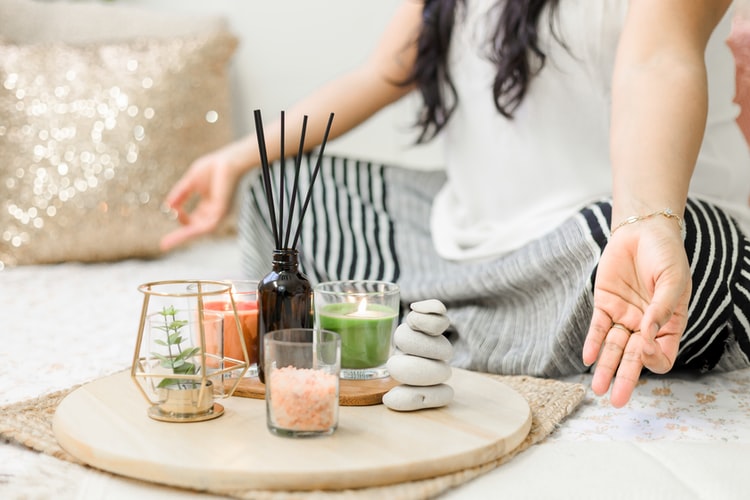Some people might imagine themselves relaxing on a beach in the last years of life and thinking back to all of the life choices they have made. They might ask: what are the most important, healthy decisions that I made to achieve a long, healthy, and happy life?
Many people will point to healthy physical choices as indicators for a healthy and happy life. Most people would argue that good sleep, regular exercise, and a balanced diet are very helpful in achieving happiness.
However, many people neglect their mental health, be it intentionally or unintentionally, which is just as important as physical health.
Focusing on regulating and improving your mental health is one of the most useful things you can do for self-improvement, and your future self will thank you for it. Personal commitments to mental health or more formal sessions, such as getting into therapy, can make a difference in overall well-being.
It can sometimes be difficult because you might not immediately see the returns on investment that you might experience if you focus on physical health, but mental health is unbelievably important for your long-term health. Improved mental health can actually help your physical health as well.
Why Mental Health Matters?

When people think of mental health, they often think about mental illnesses such as bipolar disorder, obsessive-compulsive disorder, or clinical depression. However, for some people, mental health can encompass far more than just diagnosed mental illnesses.
Mental health is an incredibly important facet of your overall well-being. Mental health includes things like the health of your relationships with people you care about, your goals and ambitions, and your fears or regrets.
There are many different ways to focus on your mental health. This article will focus on two common and effective ways: therapy and mindfulness.
Mental Health Resources:
Therapy-

1. In-Person Therapy
People sometimes get scared of the word therapy because they think it indicates weakness or a mental issue. This couldn’t be farther from the truth. Therapy is used by millions of people, many of whom are incredibly successful and stable.
Therapy isn’t just for those struggling with mental illness. Therapy is for anybody who wants to better understand their mind, unconscious, and emotional aptitude.
Many people around the world benefit from seeing a therapist, who builds a relationship with you and helps you develop and stick to a treatment plan that will benefit your mental health. Don’t hesitate to reach out for help, or even just for more information about how therapy works. It could be a decision that changes your life for the better.
2. Online Therapy
Online resources can provide helpful information about therapy. Visiting online therapeutic sites can provide a great starting point for being introduced to therapy.
The increased attention toward online therapy relates to its flexibility and accessibility for everyone. Accredited mental health professionals can maintain more diverse client lists, and those who want to see a therapist online can do things on their own time and without needing to travel.
3. Educational Resources
Even finding a therapist or other online mental health resources is easier with the help of the web. Other national organizations can also provide a lot of support and information. Feel free to visit the National Alliance on Mental Illness for more information. Mental Health America is another great resource to use for more information about therapy and mental health.
As mentioned earlier, you don’t need to have a mental illness or official diagnosis to receive therapy. Reading about mental health resources and examining how they can benefit you could help you decide what support you may need.
Mindfulness-

Mindfulness is a popular phenomenon that has helped many people learn to better understand their mental health. Mindfulness might seem new like it’s suddenly everywhere, but many historic meditative and religious practices include some form of the concept.
1. Engaging With Mindfulness in Your Life
The main tenets of mindfulness are being aware of and accepting the current moment, relieving judgment and anxiety, and letting go of worries.
It is similar in some respects to practices such as yoga or meditation, but the difference is that mindfulness can also just be about small moments throughout the day. For some people, it’s just taking 30 seconds after a stressful meeting to reorganize yourself and your mind. Many people achieve a sense of inner peace by incorporating mindfulness into their daily lives or existing exercise/yoga practices.
2. Learning More About Mindfulness Through Research
There are tons of resources for mindfulness throughout the internet and at therapy centers. The UC San Diego Center for Mindfulness has a great resource page to help you learn more about the practice.
Mindful.org also provides plenty of really interesting and helpful resources to help you learn how to become more mindful in your everyday life to relax and maintain positive mental health.
Finally, even apps help remind you to stay mindful and find little breaks throughout the day. Apps with calming sounds or stories may help to relieve stress, improve focus, and maintain mental health.
Conclusion: Mental Health Matters
Mental health as a concept is growing in popularity and awareness. People are starting to prioritize mental health just as much as they do physical health, which leads to a smarter, empathetic, and focused population.
Mental health isn’t a fad or a new trend. It’s one of the most important and influential parts of what makes a healthy and happy life. Finding ways to incorporate mental health into your life, whether it is through therapy, mindfulness, or other avenues, is crucial.
Some of the most important things in life–interpersonal relationships, long-term goals and ambitions, feelings of doubt or anxiety versus confidence–are all related to mental health. Securing a healthy, stable, and thoughtful mind is the first step to living a fulfilling and satisfying life.
Read Also:




























